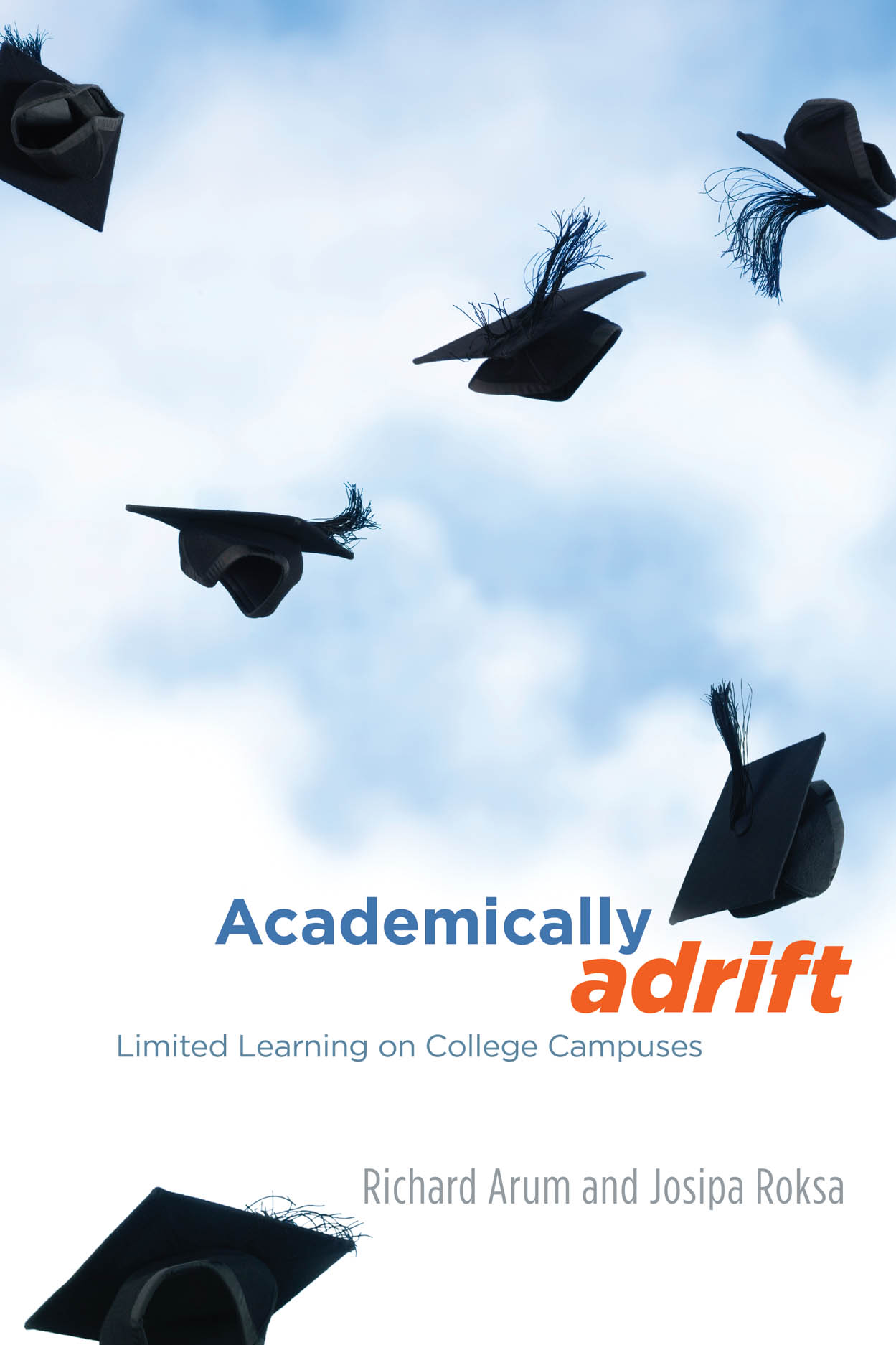(Academically) Adrift on the Web

Sometimes information clicks. Like the success of pink dresses on the red carpet outside of the Golden Globes (allow us—chagrin, we know—that cultural comparison), you can’t anticipate how new scholarship, when produced, might take off and traffic through the usual spheres of commerce and the circuitry of Web 3.0. With that in mind, we couldn’t be more fascinated by the explosive debut today (surprising findings in tow) of Richard Arum and Josipa Roksa’s Academically Adrift: Limited Learning on College Campuses.
The Chronicle of Higher Education places the book in profile in a four-part (I II III IV) series ranging from commentary and news analysis to a more targeted study, including an excerpt from the book itself.
As the Chronicle summarizes:
In the new book, Mr. Arum and his coauthor—Josipa Roksa, an assistant professor of sociology at the University of Virginia—report on a study that has tracked a nationally representative sample of more than 2,000 students who entered 24 four-year colleges in the fall of 2005.
Three times in their college careers—in the fall of 2005, the spring of 2007, and the spring of 2009—the students were asked to take the Collegiate Learning Assessment, or CLA, a widely-used essay test that measures reasoning and writing skills. Thirty-six percent of the students saw no statistically significant gains in their CLA scores between their freshman and senior years.
And that is just the beginning of the book’s bad news.
At the NYT‘s blog “The Choice,” Jacques Steinberg’s post, which synthesizes Arum and Roksa’s research in light of findings from the National Survey of Student Engagement, has already received over 70 comments in just a few hours. In addition, USA Today opened their Education section with commentary on the book, offering the following lede:
Nearly half of the nation’s undergraduates show almost no gains in learning in their first two years of college, in large part because colleges don’t make academics a priority, a new report shows.
Instructors tend to be more focused on their own faculty research than teaching younger students, who in turn are more tuned in to their social lives, according to the report, based on a book titled Academically Adrift: Limited Learning on College Campuses.
In a much trafficked post, Inside Higher Ed hones in on one of the book’s key points: “The main culprit for lack of academic progress of students, according to the authors, is a lack of rigor.” The Huffington Post continues in this vein:
The study, an unusually large-scale effort to track student learning over time, comes as the federal government, reformers and others argue that the US must produce more college graduates to remain competitive globally. But if students aren’t learning much, that calls into question whether boosting graduation rates will provide that edge.
“It’s not the case that giving out more credentials is going to make the US more economically competitive,” Arum said in an interview. “It requires academic rigor. . . . You can’t just get it through osmosis at these institutions.”
But how do you know when a scholarly book has really gone viral? Two recent reviews from Vanity Fair and Gawker (respectively) place Academically Adrift‘s findings in a bit more vernacular light:
In a crushing exposé of the heretofore secret society known as “college,” a recent book by sociologists Richard Arum and Josipa Roksa reveals precisely what parents, grandparents, and anti-intellectual naysayers have long feared: university students spend nearly five times as much of their day in bed, playing Frisbee golf, and updating their Facebook statuses as they do attending class and studying.
**
To succeed in America, you must get a college degree. To get a college degree, you must go into a soul-crushing amount of debt. And what do you get for all that money? Not learning. College kids don’t learn stuff.
No matter your thoughts on the particularities of what Arum and Roksa’s findings truly reveal—who to blame, how to adjust, and what next to to further our core understanding—even the book’s index presents a faceted take on the dynamics of undergraduate education (“e-mail correspondence, time spent on” and “student culture; and disengagement compact between faculty and students”). For more information on the book, check out its UCP page here.